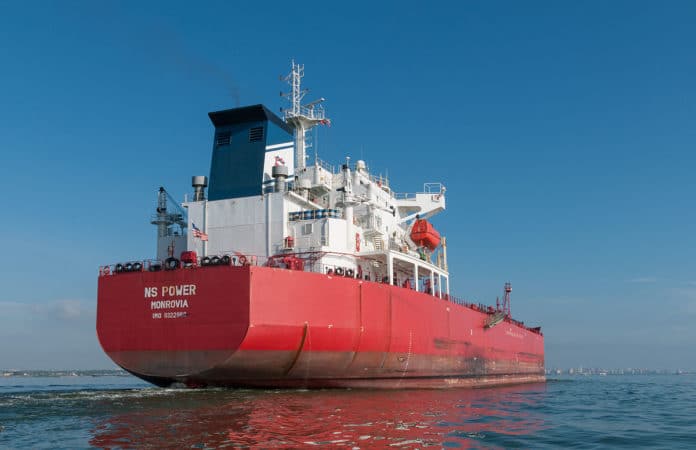
*Kremlin says it would not observe price cap
*Why India, China may also choose not to comply Greek Report
The EU has announced a forthcoming price cap on Russian oil. Credit: Wilfredor / CC0 / via Wikimedia Commons
This Friday, the European Union (EU) agreed to introduce a price cap on Russian oil. The decision is intended to punish Moscow for the Russian invasion of Ukraine and limit potential profits.
The cap will be set at $60 per barrel on Russian seaborne oil. The European bloc is hoping that the move will limit Russian President Vladimir Putin’s oil income, without causing a spike in energy prices.

The price cap
The deal was made possible after Poland dropped its objections. Warsaw delayed the initiative on the basis that the EU’s previously proposed price cap would not sufficiently erode Russia’s oil income.
The cap will be put in place alongside an EU-imposed boycott on Russian crude oil shipped by sea. Both initiatives are set for implementation on December 5. The EU will be joined by the G7 and some other allies.
Russian oil imports will continue to reach other countries like China and India, but the cap is intended to lower potential profits. Many of the firms that provide insurance coverage and seaborne transportation for Russian oil are based in the EU. Importers who rely on these firms would be forced to comply with the price cap.
The deal was confirmed by the president of the European Commission, Ursula von der Leyen. “Today, the European Union, the G7 and other global partners have agreed to introduce a global price cap on seaborne oil from Russia,” she said.
Reactions
The US welcomed the deal. Washington had spent months lobbying the European bloc to implement a price cap but there was disagreement within the EU over whether the proposed figures were too high or too low.
Some member states like Poland wanted to implement measures that would hurt Moscow the most. Other member states were wary of making a move that could jeopardize their energy security.
Nevertheless, now that the deal has gone ahead, the US has signaled its approval. US Deputy Treasury Secretary Wally Adeyemo acclaimed the deal and said that a $60 price cap would be sufficient.
Some members within the European bloc have welcomed the deal but voiced concerns that it does not go far enough. “Today’s oil price cap agreement is a step in the right direction, but this is not enough,” tweeted Estonian foreign minister Urmas Reinsalu, on Friday.
Impact of the price cap
The Estonian foreign minister’s concerns that the price cap will not go far enough have been shared by some analysts.
Simone Tagliapietra, a policy expert on energy at the Bruegel think tank in Brussels, has said that the $60 price cap “will almost go unnoticed” in Moscow. “Up front, the cap is not a satisfying number,” he opined.
Russian energy firms have already been selling oil well below the international Brent benchmark at discounted prices that fall under the $60 cap. This is primarily to stimulate demand from China, amid fears that the impact of unrest and COVID-19 may dampen demand.
Some experts have argued that a $50 cap would be more appropriate and could prevent Russia from adequately balancing its state budget. Others have said that an even lower cap was necessary.
According to Robin Brooks, the chief economist at Washington’s Institute for International Finance, a $30 cap would “give Russia the financial crisis it deserves.”
Nevertheless, the price cap combined with the EU’s embargo on most Russian crude oil may be enough to dent Moscow’s profits given enough time and with appropriate adjustments.
If the international Brent benchmark for oil climbs well above the $60 cap, then the measure may well begin to hurt Russia’s bottom line.
Russian response and international compliance
The Kremlin has said that it would not observe the price cap. India and China may also choose not to comply. Beijing and Moscow remain allies and New Delhi has essentially remained neutral.
Russia and countries importing Russian oil may opt to set up their own insurance firms and operate their own oil tankers to bypass Western sanctions.
Russia may also look to other historically sanctioned countries for inspiration. Iran and Venezuela have grappled with sanctions for decades. To bypass embargos, they have exported energy via “dark fleets” of tankers with difficult-to-trace ownership.
The price cap and forthcoming embargo are certainly not insurmountable obstacles that will prevent Russia from making oil profits. Their effectiveness will depend on a combination of factors; namely, whether oil prices rise, the compliance of non-Western states, and Moscow’s ability to bypass sanctions.
Source: GreekReporter.com.








